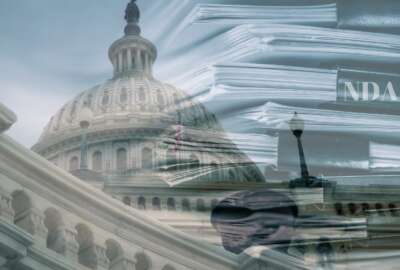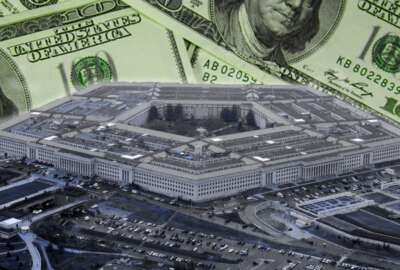
NDAA veto could jeopardize pay and benefits for nurses, Gold Star Families and other military occupations
A whole swath of professions will lose special pay if Congress can't override the NDAA veto.
The House has already decided to override President Donald Trump’s veto of the more than $740 billion authorization of military funds, but the Senate still needs two-thirds of its members to rebuff the decision.
Some senators said they plan on holding up the bill unless Senate Republicans pledge to hold a vote on increasing coronavirus pandemic relief checks from $600 to $2,000. That could slow down the process, but not stop it.
In the meantime, service members and Defense Department employees could see changes to their paychecks and perks if Congress is unable to manage to overturn the veto of the 2021 National Defense Authorization Act.
The bill must be passed by Jan. 3, 2021, when the new legislative cycle starts. Otherwise, Congress will have to start the bill all over again, which would leave it open to new provisions and negotiations.
People losing money will also have to take the cut while paying back the payroll tax deferral that was added as part of the coronavirus relief. Starting in January, service members will have 6.2% Social Security tax withheld from their paycheck.
Military pay raise — maybe?
One of the marquee provisions of 2021 NDAA is a 3% pay raise for military service members. The military has seen slightly larger raises under the Trump administration compared to previous years.
Federal law states that the president can submit an alternative pay plan for the military, similar to civilians, that is not tied to the Consumer Price Index (CPI) — the military pay raise would default to the CPI increase if the NDAA doesn’t pass.
That plan needed to be submitted by Sept. 1, and there is no evidence that the White House sent the plan over. The plan is supposed to include “an assessment of the impact that the alternative pay adjustments proposed in the plan would have on the government’s ability to recruit and retain well-qualified persons for the uniformed services.”
In other words, if the NDAA doesn’t pass don’t hold your breath on a 3% raise.
Hazard pay
The NDAA provides for an increase in hazard pay for service members abroad and fighting against the pandemic. The pay would be increased from $250 a month to $275 a month. That would not apply to troops receiving combat pay, who get an extra $450 a month.
Special pay
Congress regularly extends special pay for certain occupations within the NDAA every cycle for a one-year period. This year is no exception and a handful of careers would see that special pay expire without an NDAA.
Reserve forces who frequently mobilize for active duty will not get income replacement payments.
Health care workers will also lose some pay. Nurse office candidates will not receive accession bonuses of $20,000 or a monthly stipend and health professionals will not have education loans repaid.
Nuclear officers will lose their incentive pay.
Incentive bonuses and pay for enlisted members, pilots, health professionals and other “critical military skills” or service members assigned to “high priority units” will expire.
Bonuses for certain assignments, hazardous duty and certain skills will also go away.
Accession bonuses
Congress planned to attract new people to much needed positions with increased accession bonuses as well. All of those will fall by the wayside.
They include an increase from $30,000 to $100,000 for officers in health professions, an increase for critically short wartime specialties from $100,000 to $200,000.
Benefits
There are a few benefits that service member families and survivors may not get as well. Those include priority housing for military spouses who agree to provide daycare services and free national parks passes for Gold Star Families.
Copyright © 2025 Federal News Network. All rights reserved. This website is not intended for users located within the European Economic Area.
Scott Maucione is a defense reporter for Federal News Network and reports on human capital, workforce and the Defense Department at-large.
Follow @smaucioneWFED





